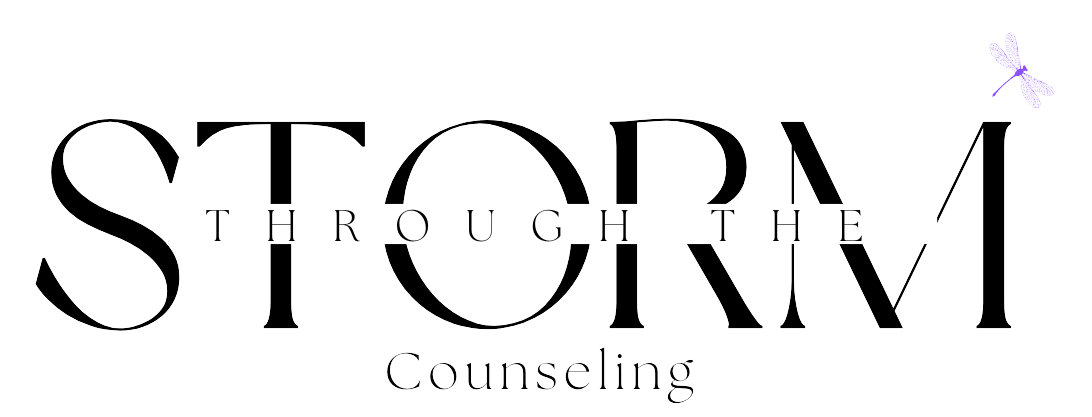Pricing
What is the cost per session?
Consultation: Free 30-minute session.
Individual Therapy: $110 per 50-minute session.
Adolescent/Kid Therapy: $110 per 50-minute session.
Virtual Session: $110 per 50-minute session.
Please inquire about specific fee details for family therapy and other specialized services. As a clinical associate, I reserve a portion of my appointments for clients needing a sliding-scale fee structure. Please ask me about availability.
What are your payment options?
Preferred Methods: Credit, Debit, Cash, Checks, Venmo, and HSA cards
Card Payments: Credit and debit cards are accepted with a 3.5% processing fee.
Insurance: At Through the Storm Counseling, I do not accept or file insurance directly. However, I provide super bills through your client portal, which you can submit to your insurance provider for reimbursement under your out-of-network benefits. To find out if you have out-of-network coverage for mental health services, we recommend calling the number on the back of your insurance card. If you have any questions or need assistance with this process, please don’t hesitate to reach out—we’re here to help!
Do you bill at the time of service?
Yes, payment is due at the time of service. I do require a credit card be on file prior to your appointment. All credit card information is encrypted in our HIPAA compliant software.Each client is responsible for managing the finances of the psychotherapy relationship. I accept all credit cards and checks.
What is the cancellation policy?
Your appointment is reserved for you. If you need to cancel an appointment, please do so at least 24 hours in advance. Cancellations made less than 24 hours before the session may be subject to the full session fee.
Randi Cunningham, LPC- Associate
Supervised by Elizabeth Miller, Ph. D., LPC-S, LMFT
Modalities
Cognitive Behavior Therapy (CBT)
Cognitive Behavioral Therapy (CBT) is a widely researched and effective form of therapy that focuses on the relationship between your thoughts, feelings, and behaviors. It helps you recognize negative or unhelpful thought patterns that contribute to emotional distress and problematic behaviors. Through CBT, you'll learn practical strategies to challenge these thoughts, develop healthier coping mechanisms, and make positive changes in your life.
Solution-Focused Brief Therapy (SFBT)
Solution-Focused Brief Therapy (SFBT) is a short-term, goal-directed therapy that prioritizes your desired future and existing strengths. Unlike traditional therapies that delve deeply into past problems, SFBT focuses on identifying exceptions to problems, exploring what's already working, and envisioning a preferred future. Through techniques like the miracle question and scaling questions, we'll collaboratively develop concrete steps to help you achieve your goals and create lasting change.
Emotionally Focused Therapy (EFT)
Emotionally Focused Therapy (EFT) is a powerful approach that helps couples and families understand and transform their relationship dynamics. It emphasizes the importance of emotional connection and helps individuals identify and address the underlying emotions that drive negative interaction patterns. Through EFT, you can develop healthier ways of communicating and build a more secure and loving relationship.
Specialties
Family Therapy: Parent-Child Relationships, Sibling Issues, Blended Families, Co-Parenting
Divorce & Separation: Support During Transition, Co-Parenting after Divorce
Relationship Issues (General): Attachment Issues, Boundary Setting, Healthy Relationships
Affair Recovery: Healing and Rebuilding Trust After Infidelity
Anxiety Disorders: Generalized Anxiety, Social Anxiety, Panic Disorder, Phobias, Obsessive-Compulsive Disorder (OCD)
Trauma & PTSD: Post-Traumatic Stress Disorder, Acute Stress Disorder, Complex Trauma, Trauma-Informed Care
Stress Management: Coping Skills, Relaxation Techniques, Burnout Prevention
Grief & Loss: Bereavement Counseling, Grief Support, Loss of a Loved One
Self-Esteem & Self-Image: Building Confidence, Body Image Issues
Faith-Based Therapy
In faith-based therapy, I understand that spiritual beliefs are a vital part of your identity and a source of strength. Faith can also be a powerful resource. I provide a compassionate and supportive space, free from judgment, where you can openly explore your challenges, whether they involve anxiety, depression, relationship issues, or life transitions. Here, you're not asked to separate your faith from your struggles; instead, we integrate your beliefs into the therapeutic process. We draw upon the wisdom and guidance found within your faith tradition, helping you find meaning and purpose as you navigate life's complexities. Together, we'll work to identify and address the root causes of your distress, develop healthy coping strategies, and cultivate a more fulfilling life, grounded in spiritual values. Our goal is to empower you to find hope and healing, allowing your faith to be a source of resilience and growth on your journey toward wholeness.
Other Information
How Long is Therapy?
Therapy is a personalized process, and the length of treatment varies for each individual or couple. Some clients achieve their goals in just a few sessions, while others prefer ongoing support for several months or longer. On average, therapy lasts between 10 and 20 sessions, but your journey will be shaped by factors such as the complexity of your concerns, the depth of exploration you seek, and your readiness for change. Whether you’re looking for short-term guidance or long-term growth, we’ll work collaboratively to create a therapy plan that fits your needs and goals. We will also have consistent check-ins to make sure that the therapy is going how you want it to and to make any needed adjustments.
What Age Groups Do I Work With?
I provide therapy for kids ages 8-11, teens ages 12 and up, adults, geriatrics 65+, and families
Do you provide emergency services?
At Through the Storm Counseling, I focus on outpatient psychotherapy, and unfortunately, we do not offer emergency services or have an answering service. If you find yourself in need of immediate assistance or are experiencing a crisis, we encourage you to reach out to 911 or 988 for the suicide hotline. If you are in immediate danger from domestic violence or sexual violence, reach out to Panhandle Crisis Center at (806) 435-5008 or toll-free at 1-800-753-5308. Your safety and well-being are important to us, and we want to ensure you receive the help you need.
Is Therapy Confidential?
Confidentiality is a fundamental part of therapy, and the law generally protects all communication between a client and a psychotherapist. No information will be shared without your written consent, which typically involves a formal release of information form. However, there are legal exceptions where disclosure is required:
Suspected Abuse: If there is reason to believe a child, dependent adult, or elder is being abused or neglected, the therapist must report it to the appropriate authorities.
Threats of Harm to Others: If a client expresses intent to cause serious harm to another person, the therapist is legally obligated to notify law enforcement.
Risk of Self-Harm: If a client is at risk of harming themselves, every effort will be made, in collaboration with the client, to ensure their safety. If they are unwilling to cooperate, further steps may be necessary.
Under the No Surprises Act, clients who are uninsured or not using insurance have the right to receive a Good Faith Estimate (GFE) of expected charges for non-emergency medical services, including counseling and psychotherapy. The Good Faith Estimate helps clients understand the potential costs associated with their care before they begin services.
Telehealth: All confidentiality rules apply to telehealth sessions as well.
Letter Writing Fee
A $100 fee is required for the preparation and issuance of any letter written on behalf of a client. This fee covers the time and administrative effort involved and is not included in standard therapy session costs. This includes but is not not limited to emotional support animal (ESA) letters, medical necessity letters, and school or workplace accommodation letters. This fee covers the time, clinical consideration, and administrative effort involved and is not included in the standard cost of therapy sessions.
Good Faith Estimates + Therapeutic Process
Therapy is a highly individualized process, and each person’s journey is unique. The length and frequency of treatment depend on your specific needs, goals, and personal circumstances. While we’re happy to provide a Good Faith Estimate, please know that it’s simply an estimate—your therapeutic process may be shorter or longer based on what is right for you and your unique circumstances. We’re here to support you at every step, at a pace that honors your healing and growth.
A written Good Faith Estimate will be provided upon request or during the intake process. Clients are encouraged to reach out with any questions regarding service fees, available services, or financial planning for their care.

